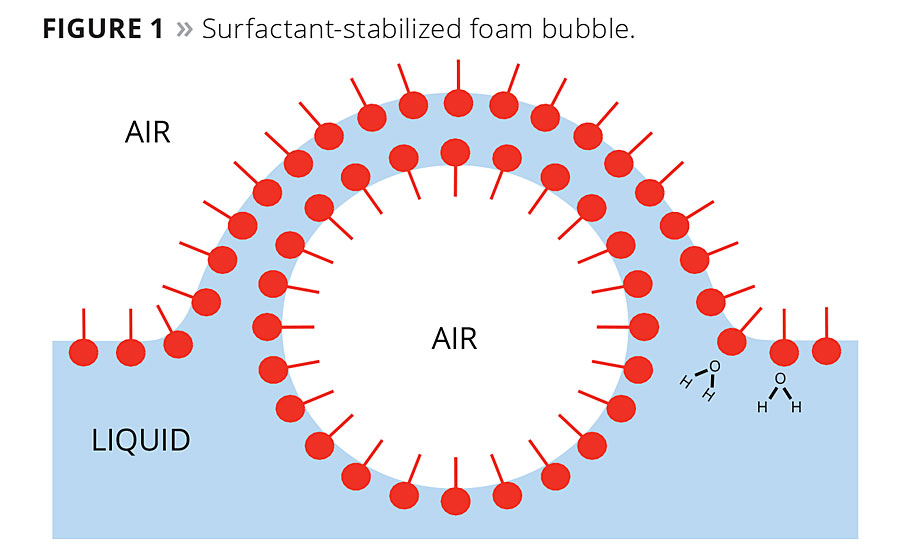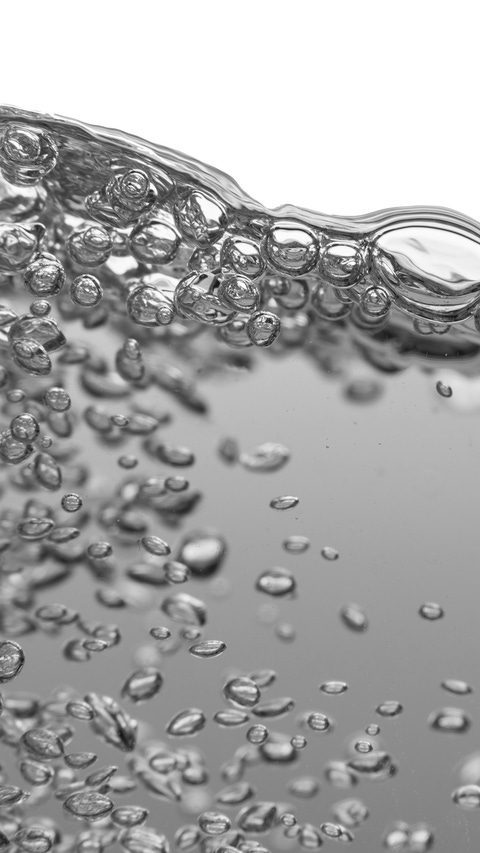The Importance of Defoamers in Industrial Processes and Applications
The Importance of Defoamers in Industrial Processes and Applications
Blog Article
The Duty of Defoamers in Enhancing Product High Quality and Efficiency
Defoamers serve as important ingredients that alleviate this problem, guaranteeing smoother production operations while enhancing the visual and practical characteristics of the final items. The selection of the proper defoamer can be crucial to accomplishing optimum outcomes, raising essential inquiries regarding formulation compatibility and performance metrics that merit additional exploration.
Understanding Defoamers
Recognizing the function of defoamers is necessary for maintaining product high quality across numerous industries. Defoamers are chemical ingredients designed to prevent the formation and minimize of foam in liquid systems, which can detrimentally influence procedures such as mixing, filling, and surface area tension. Foaming can lead to inadequacies, product issues, and compromised aesthetic allure, making defoamers an essential part in making procedures.
In commercial applications, defoamers aid to enhance product consistency and stability. In the paint and coverings sector, foam can interfere with the application process and the last surface. Likewise, in food and drink manufacturing, too much foam can hinder bottling and product packaging effectiveness (defoamers). The efficient use of defoamers not only ensures smoother production processes but additionally contributes to premium item performance.
Moreover, the choice and solution of a defoamer have to line up with specific application demands, such as compatibility with other components, efficiency under varying temperature and pH problems, and prospective regulatory restrictions. Ultimately, recognizing defoamers' functions and their significance in numerous formulations is crucial for enhancing manufacturing and making sure the best output.
Sorts Of Defoamers
Defoamers can be classified into a number of types based on their make-up and mechanism of action. The main kinds include silicone-based, non-silicone organic, and not natural defoamers.
Silicone-based defoamers are amongst one of the most reliable, largely because of their capability to spread swiftly on the liquid surface and disrupt foam development. Their unique chemical structure allows for premium stability, making them ideal for high-temperature applications and atmospheres with varying pH levels.
Non-silicone organic defoamers, frequently made up of natural oils or fatty acids, are valued for their biodegradability and lower poisoning. These are generally utilized in food and drink applications where safety and environmental influence are paramount.
Not natural defoamers, which consist of substances like talc or calcium carbonate, act by increasing the density of the liquid, thereby minimizing foam security. They are often utilized in industrial processes where compatibility with various other products is not a problem.
Each kind of defoamer has unique advantages and limitations, allowing for tailored remedies relying on the details lathering problems come across in different applications. Comprehending these differences is crucial for optimizing efficiency and achieving wanted product quality.
Applications Across Industries
Countless markets take advantage of defoamers to improve product quality and operational efficiency. In the food and drink field, defoamers are crucial in procedures such as developing and dairy products production to protect against foam development, which can result in inefficiencies and item disparity. By controlling foam, manufacturers can make certain far better yield and an extra consistent product.
In the pharmaceutical sector, defoamers play a crucial function in the formulation of fluid medicines, where excessive foam can restrain mixing and exact dosing. Their usage aids keep the integrity of the solutions and promotes smoother production processes.
The paint and layers market also depends on defoamers to enhance the efficiency of items throughout application. By minimizing foam, these ingredients guarantee a smoother surface and improve the aesthetic top qualities of the final additional reading product.

Benefits of Using Defoamers
While the application of defoamers differs throughout sectors, their advantages constantly boost item high quality and procedure performance. One substantial benefit is the reduction of foam formation during making procedures, which can or else result in production delays and inconsistencies in product quality. By minimizing foam, defoamers allow a smoother flow of products, promoting extra efficient operations and reducing the likelihood of equipment malfunctions.
Additionally, the use of defoamers can boost the look and texture of end products. In industries such as finishes, paints, and food processing, too much foam can endanger the visual looks and overall high quality, while the appropriate defoamer application makes sure an uniform coating and desirable characteristics. Defoamers can contribute to set you back financial savings by reducing waste throughout production and enhancing the use of raw products.

Picking the Right Defoamer
Picking the appropriate defoamer is essential for enhancing production procedures and making sure item top quality. The selection of defoamer influences not only the efficiency of foam control but likewise the total performance qualities of the last item. Elements to consider consist of the sort of application, the chemistry of the formula, and the environmental problems under which the item will certainly be used.
Different industries might call for certain defoamer kinds, such as silicone-based, natural, or polymeric defoamers. Understanding the compatibility of the defoamer with the main ingredients is important to prevent negative responses that can jeopardize item integrity. In addition, the defoamer's effectiveness in numerous temperature levels and pH degrees should be reviewed to make certain constant performance.
Evaluating the defoamer in small applications can offer beneficial insights right into its efficiency and suitability. Factor to consider of regulatory compliance, specifically in food, pharmaceuticals, and cosmetics, is extremely weblink important in selecting a defoamer. Inevitably, a complete assessment of these aspects will certainly result in the option of a defoamer that not only regulates foam effectively yet also improves the top quality and performance of the final item.
Verdict

In conclusion, defoamers are important ingredients that dramatically improve product quality and performance across various industries. The tactical choice and application of defoamers lead to cost financial savings, enhanced source use, and increased consumer fulfillment.
Frothing can lead to inadequacies, product defects, and look at this web-site endangered visual appeal, making defoamers a crucial component in making operations.

Report this page